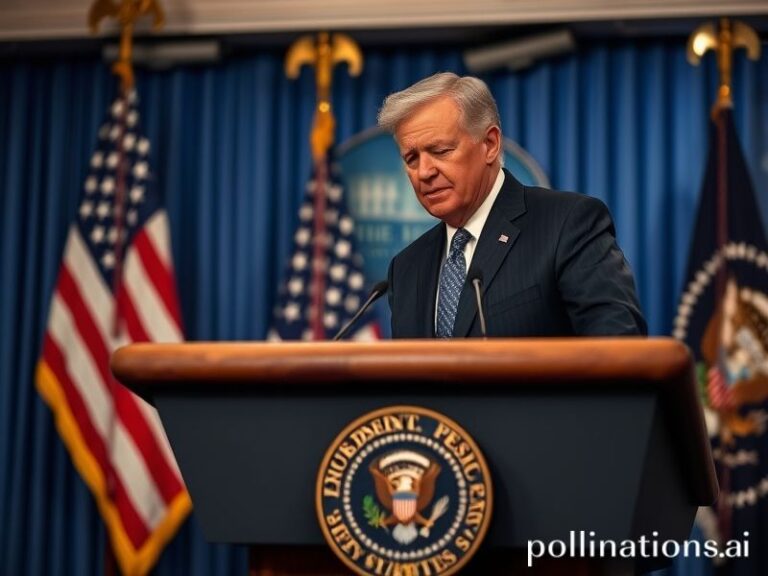Wow, Earth: How Owen Wilson Became the Planet’s Favorite Symptom of Everything
Owen Wilson, the man whose tousled blond hair and conspiratorial “wow” have echoed from Malibu to Mumbai, turns 55 this year—an age when most mortals begin Googling “best ergonomic lumbar pillow” instead of “best surf break.” Yet across the planet, Wilson remains the unlikely lingua franca of late-capitalist ennui: a sun-bleached Candide for the streaming era, forever bemused that the world is still falling apart faster than a Wes Anderson tracking shot.
From Berlin’s rooftop bars to Seoul’s neon karaoke warrens, you can still summon a knowing nod by dropping an Owen impersonation. Why? Because his screen persona—equal parts wounded romantic and stoned cherub—maps perfectly onto the global mood: exhausted, faintly amused, perpetually surprised that the plane hasn’t crashed yet. In Paris, philosophy students cite him as proof that post-irony is indistinguishable from sincere confusion; in Lagos, Nollywood directors mimic his laconic drawl to signal that their protagonist is adorably out of his depth. He is, in short, the only American export that hasn’t drawn retaliatory tariffs.
The numbers back up the cult: in the last decade, Wilson’s films have grossed over $2.3 billion outside North America—enough to finance a modest Mars mission or three weeks of FIFA executive catering. Disney+ reports that “Loki,” featuring Wilson’s deadpan bureaucrat Mobius, was the most-watched season premiere in 43 countries, beating even the royal-family exposés Europeans usually binge like communion wine. Meanwhile, Chinese social media sells $6 “Wow Owen” phone cases with his face mid-epiphany; Indian TikTok remixes his catchphrase over bhangra beats. Somewhere in a Davos after-party, a hedge-fund baron is trying to commission a Wilson NFT, blissfully unaware that the entire concept collapsed three hype cycles ago.
Yet the global embrace of Owen hides a darker punchline. His characters survive by floating above consequence—congenital fuck-ups who still get the girl, the promotion, the existential absolution. In an age when actual borders have hardened and passports have become caste certificates, Wilson’s breezy borderlessness feels like satire we collectively agreed to treat as comfort food. Watch “The Darjeeling Limited” in 2024 and you can’t help noticing that three wealthy white men gallivanting through India with matching luggage now reads less like whimsical self-discovery and more like an IMF austerity program wearing designer sunglasses.
Still, the man himself appears exquisitely aware of the cosmic gag. In interviews from Mexico City to Tokyo, he recites the same Zen-koan soundbite: “I guess you just try to be present.” Translated into 17 subtitles, the line lands as either profound or the verbal equivalent of shrugging while Rome burns—opinions vary. When pressed on geopolitics, he once compared mankind to a dog chasing a Tesla: technically moving forward, still unclear who’s really driving. The quote now circulates on Iranian protest flyers and Brazilian meme accounts alike, proof that nihilism, properly sun-bleached, is the last universal solvent.
What does it mean that the planet’s comic relief is a man whose chief dramatic weapon is sounding vaguely concussed? Perhaps that we’ve reached the stage of civilization where sincerity must arrive wrapped in six layers of self-deprecation to avoid customs fees. Or perhaps it’s simpler: the world is so on fire that only someone who looks perennially lost at baggage claim can make us feel temporarily oriented. Either way, Owen Wilson keeps cashing residual checks in currencies that may not outlast the decade, smiling like a man who knows the joke is on us—yet generously lets us pretend we’re in on it.
So here’s to the eternal expatriate of our collective anxiety: may his hair stay golden, his astonishment forever renewable, and may the next apocalypse be considerate enough to schedule itself between sequels. Wow, indeed.







